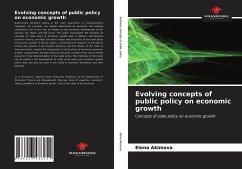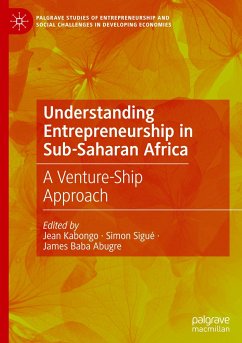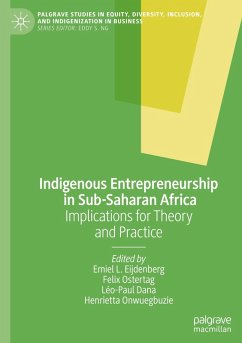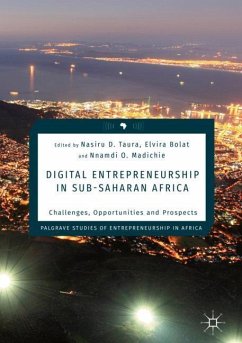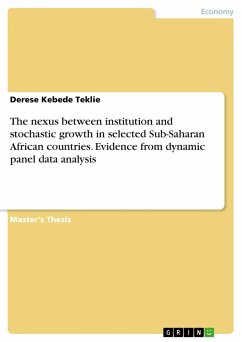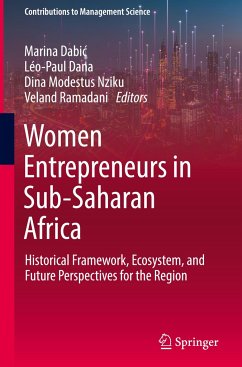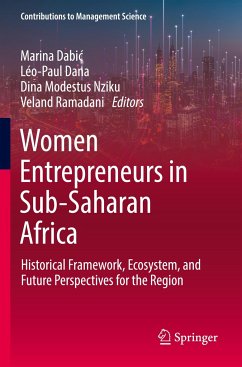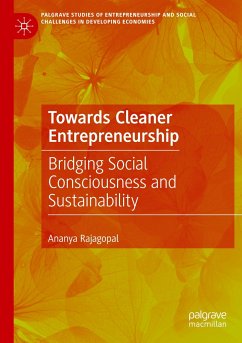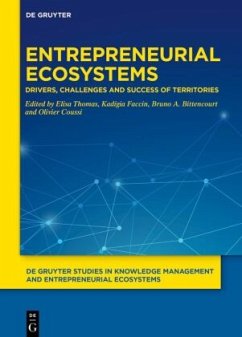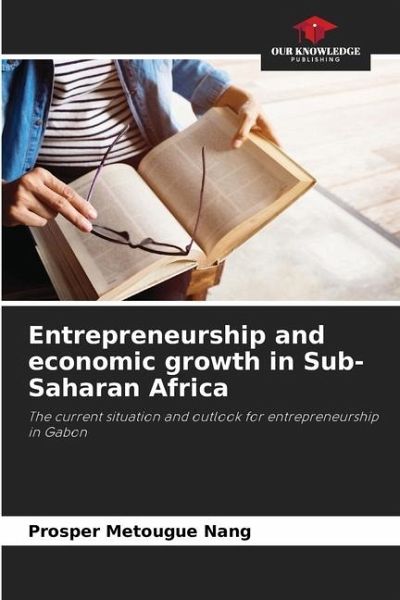
Entrepreneurship and economic growth in Sub-Saharan Africa
The current situation and outlook for entrepreneurship in Gabon
Versandkostenfrei!
Versandfertig in 6-10 Tagen
69,99 €
inkl. MwSt.

PAYBACK Punkte
35 °P sammeln!
Following what can be described as a first-generation growth model based on the export of raw materials and supported by external financing, the emergence of a true market economy is currently one of the plausible ways for African countries such as Gabon to emerge from the financial crisis. But this quest for economic efficiency from a liberal perspective obeys a certain number of laws. The market is the reference model. Competition allows economic equilibrium to be achieved, hence the liberal credo of "laissez-faire". To this end, the improvement of the economic environment is a prerequisite,...
Following what can be described as a first-generation growth model based on the export of raw materials and supported by external financing, the emergence of a true market economy is currently one of the plausible ways for African countries such as Gabon to emerge from the financial crisis. But this quest for economic efficiency from a liberal perspective obeys a certain number of laws. The market is the reference model. Competition allows economic equilibrium to be achieved, hence the liberal credo of "laissez-faire". To this end, the improvement of the economic environment is a prerequisite, i.e. the creation of a legal framework for accumulation enabling rational individuals to fulfil their potential through entrepreneurship, the criterion being the realisation of profit. In this respect, the role of the State appears to be decisive, particularly in countries where essential needs are not being met. It needs to find a new way of regulating the economy, in order to stimulate broad-based growth.



